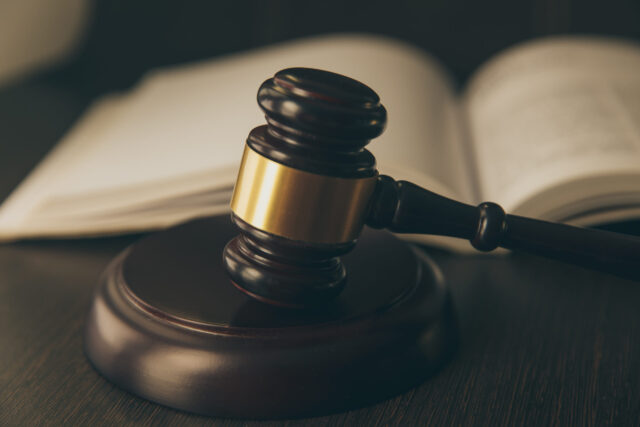
Driving under the influence (DUI), also known as driving while intoxicated (DWI), is a serious criminal offense that involves operating a vehicle while impaired by alcohol or drugs. The consequences of a DUI violation can be severe and far-reaching. They typically include hefty fines, suspension of driving privileges, potential jail time, and possibly, mandatory alcohol or drug counseling. A DUI conviction can adversely affect one’s employment prospects and increase insurance premiums.
Understanding the DUI court process is necessary for anyone who is charged with a DUI or is trying to help a loved one who is facing such an accusation. Being familiar with the court process can alleviate some of the stress and uncertainty that often accompany a DUI arrest. It can help defendants and their families make informed decisions, manage expectations, and be prepared for every stage of the legal process. Possessing knowledge of the court proceedings might influence the case’s outcome. Therefore, comprehension of the DUI court process is necessary, irrespective of whether the person charged is pleading innocent or guilty.
DUI Arrest: The Starting Point

A DUI arrest typically commences when a law enforcement officer has reasonable grounds to believe a driver is impaired due to the consumption of alcohol or drugs. Common causes leading to suspicion may include erratic driving, such as swerving, speeding, or causing an accident. Officers may also initiate a DUI arrest following a routine traffic stop if they note symptoms of impairment such as the smell of alcohol, slow reaction times, bloodshot eyes, or slurred speech. It is prudent to consult a DUI defense lawyer immediately following an arrest to ensure appropriate legal measures are considered and safeguard the suspect’s rights.
Field Sobriety and Breathalyzer Tests; Booking and Bail
Upon suspicion of intoxicated driving, the officer may administer field sobriety tests or a breathalyzer test. Field sobriety tests often include tasks like standing on one foot or walking in a straight line. Breathalyzer tests measure the blood alcohol concentration in the driver’s system. If an individual fails these tests or refuses to take them, they may be arrested on DUI charges. Following the arrest, the officer usually takes the suspect into custody for booking, a process that includes taking fingerprints, a mugshot, and holding the individual in jail until they can post bail. Bail conditions vary depending on factors such as prior arrests and severity of the current offense.
Pre-Trial Proceedings

Pre-trial hearings in a DUI case serve several functions in the legal process. These hearings, scheduled before the actual trial, allow the judge, the prosecution, and the defense to review facts, debate legal issues relevant to the case, and evaluate the evidence. The purpose of these proceedings includes assessing whether there’s sufficient evidence to proceed to trial, examining the legality of the evidence obtained, and ensuring compliance with procedural rules to protect the defendant’s rights. An important issue discussed during pre-trial hearings often involves the sufficiency and legality of the arrest itself and the subsequent sobriety tests conducted.
Plea Bargaining and The Importance of Lawyer Advice
Plea bargaining involves negotiation between the defense and prosecution where the defendant agrees to plead guilty to a lesser charge or for a more lenient sentence. This process can bring about quicker resolution of the case and can be beneficial to all parties involved. However, it’s important to have expert legal advice before entering into a plea deal. A knowledgeable lawyer can help assess the pros and cons of plea bargaining in the context of the specific facts of the case and can guide the defendant in making an informed decision. They can weigh the strength of the prosecution’s case against the potential penalties and consequences of a trial verdict versus a plea bargain.
DUI Trials

A DUI trial typically begins with the selection of a jury, followed by the opening statements from the defense and prosecution. The judge oversees the court proceedings, ensuring that the trial is conducted fairly, impartially, and according to the law. The prosecutor represents the state and carries the burden of proving beyond a reasonable doubt that the defendant committed the DUI offense. The defense attorney’s role, on the other hand, is to present a case that challenges the prosecutor’s evidence and to advocate vigorously for the defendant. Both the prosecutor and defense attorney present their case through the examination of witnesses and presentation of evidence.
Sentencing Phase
If found guilty of a DUI offense, the sentencing phase commences. This is the stage where the consequences for the DUI conviction are determined. Penalties can greatly vary depending on various factors, such as local laws, the nature of the offense, prior DUI convictions, and the judge’s discretion. These penalties often include fines, which could range from hundreds to thousands of dollars.
Probation
Probation could be another part of the sentence, which means living under specified rules and regular monitoring for a fixed period. Probation may require the offender to report to a probation officer, abstain from alcohol use, submit to random alcohol testing, and/or complete community service. Many jurisdictions also mandate DUI offenders to attend alcohol education programs to understand the dangers tied to drunk driving.
Understanding the DUI court process is highly encouraged for those facing such accusations and their loved ones. From arrest to release, every stage of the process provides opportunities for legal defenses and requires informed decision-making. Ensuring you have accurate information, proper legal representation, and an understanding of the potential long-term impacts can help you with these charges and, ultimately, protect your future.






